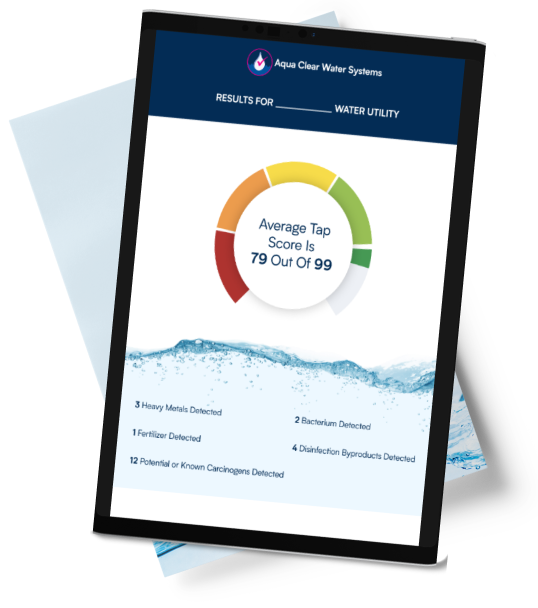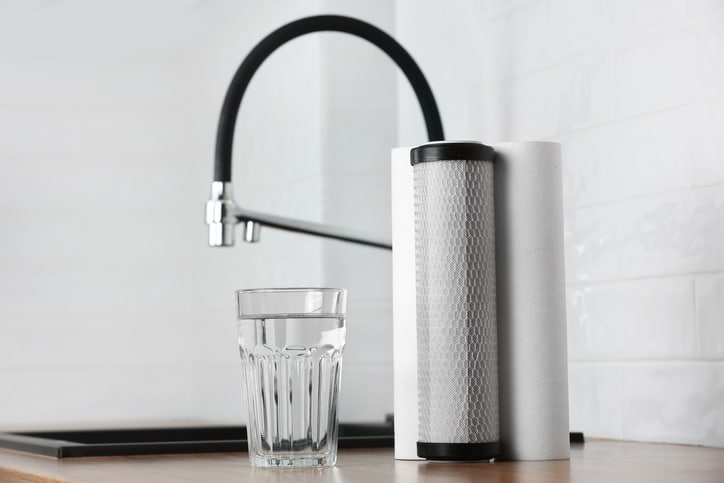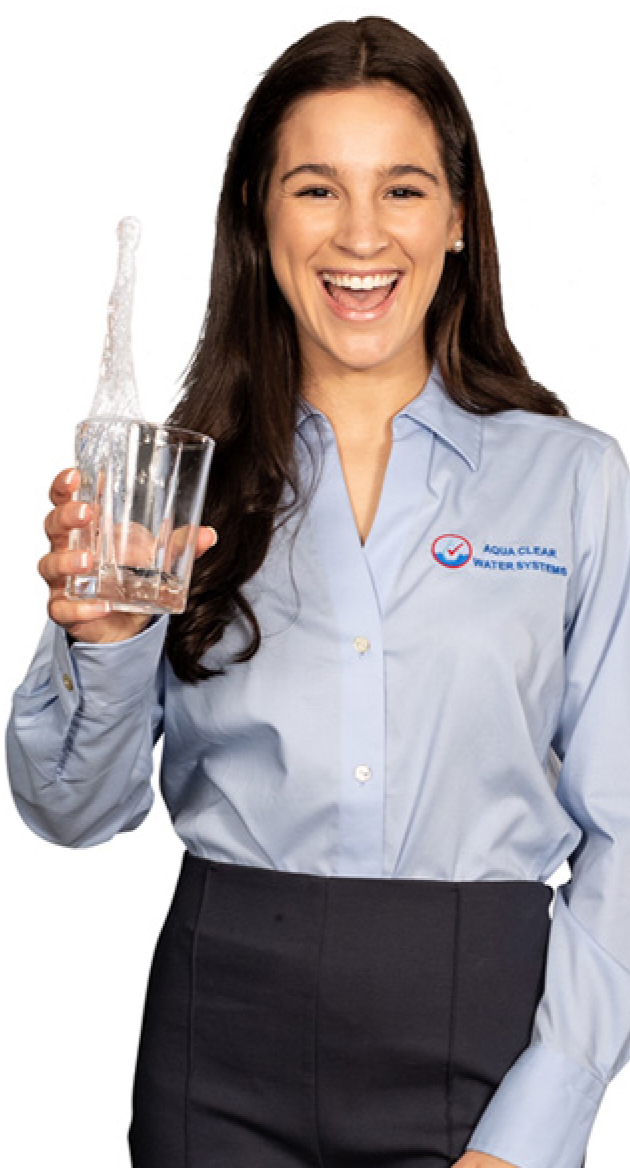Any search you perform on the internet is sure to bring up thousands of results and it can be hard to know what’s a fact and what’s little more than an urban legend. In this post we’ll cut through and give you the facts you need to answer your search for ‘hard water kidney stones’.
What is Hard Water?
An increasing concern for consumers in the United States is the hardness of water. People are concerned about hard water causing damage to home plumbing systems and to their appliances, though more recently, question marks have emerged over the impact of hard water on human health.
Large areas of the US receive ‘hard’ water, which is defined as having high levels of minerals dissolved in it. Mostly these minerals are calcium and magnesium, though others may be present too. Primarily, consumers feel the effects of hard water on their hair and their skin, as it can lead to dryness and a greater need for moisturizing products.
However, many Americans are curious about the potential link between hard water and the painful condition of kidney stones. This article aims to make you aware of any existing risks and support you in dispelling common myths around hard water and kidney stones.
What are Kidney Stones?
Kidney stones are small deposits of minerals and waste products from the blood that collect in the kidneys (the body’s own filtration system for waste and excess fluids.) These crystallized deposits build up and clump together, forming hard lumps known as kidney stones.
Some are small enough to go unnoticed in the body and will be expelled painlessly through urination. Others, though still small, will be painful to pass and symptoms may require treatment at home.
Larger kidney stones may cause the following symptoms:
- Pain in the sides of the abdomen, the groin or towards the back.
- High temperature.
- Nausea and/or vomiting.
- Blood in the urine.
- Urine infection.
Kidney stones are more likely in people who are consistently dehydrated, those who take certain classes of medication or those who suffer medical conditions which raise the level of certain minerals or substances in the urine or blood.
A kidney stone which blocks the ureter (the tube between the kidneys and bladder) may cause a kidney infection, as waste cannot leave the body and bacteria can build up in the kidneys. The symptoms of this are similar to those of kidney stones, though many also experience:
- Chills and shivering.
- Feeling weak or tired.
- Urine that is cloudy and/or has a foul odor.
What are the Causes of Kidney Stones?
Kidney stones are caused by chemicals in the body including calcium, oxalate and uric acid, and sometimes including ammonia and cysteine. Some medical conditions cause these chemicals to build up more frequently and at higher levels, for example hyperparathyroidism, gout, inflammatory bowel disease, cystic fibrosis and diabetes.
Obesity and recurrent urinary tract infections (UTIs) may also increase the risk of developing kidney stones.
There are various types of kidney stone, due to their different chemical make-up:
- Calcium-Based: These are the most common and develop due to increased elemental calcium in the body.
- Struvite-Based: These tend to develop in those prone to recurrent UTIs.
- Uric Acid-Based: These develop due to an increase in acid in the kidneys.
Some people suffer recurrent kidney stones. Risk factors for this are varied:
- Consuming a high protein and low fiber diet.
- Being inactive or bedbound.
- Having a family history of kidney stones.
- Suffering frequent kidney infections or UTIs.
- Previous experience of kidney stones (once you have had them once, you are more likely to develop them again than someone who has never had them).
Some medicines may also increase the risk of developing kidney stones, due to the way they change chemical balances in the body. These include aspirin, antacids, antiepileptic medications and diuretics. You should consult your physician if you have any concerns about your medication increasing your risk of kidney stones.
Does Hard Water Cause Kidney Stones?
As kidney stones can be formed from excess calcium, it follows that people may think consuming calcium-rich hard water would increase the risk of developing kidney stones. However, scientific research tends to give inconsistent results linking the hardness of domestic water supplied to the occurrence of kidney stones.
A study published in 2025 (link) suggested that the concentration of calcium in drinking water had no significant effect on the risk of kidney stones. While some studies indicate that harder water does lead to a higher incidence of kidney stones, it is largely agreed that the mineral content of hard water is not a major factor in kidney stone formation.
Many people also wonder ‘does limescale cause kidney stones?’. The answer is no as limescale is a buildup of the calcium and magnesium we’ve mentioned in hard water. It can cause your appliances to wear out more quickly though, and if you get a piece in your hot drink from your kettle it provides a horrible crunch!
What Myths Should you Steer Clear of?
The primary myth pedaled by those who link hard water to kidney stones is that the extra calcium in hard water clumps together in the kidneys to form kidney stones, because the body can’t process it. If this were true, the incidence of kidney stones would be much higher in the US than we currently see, as much of the country receives calcium-rich water.
If you’ve been searching ‘well water kidney stones’, the answer is the same as the myth of more kidney stones comes from the fact that water from wells tends to be hard.
However, hard water may indirectly cause kidney stones. This is because many people find that the taste of hard water is not particularly pleasant, and they don’t like to drink it. We know that consistent dehydration is a cause of kidney stones.
Another myth is that cranberry juice will prevent kidney stones. This may be due to the knowledge that cranberry juice can help to prevent recurrent UTIs, and people linking these to the kidneys and therefore kidney stones. However, there is no proof of benefit to the consumption of cranberry juice, to those who frequently suffer kidney stones.
A third major myth is that water is the only fluid that will prevent kidney stones. In various studies, it has been found that the volume of fluid consumption is more important than the type of liquid consumed. While water is vital to human health and wellbeing, consuming other beverages alongside it to maintain hydration will help to reduce your risk of developing kidney stones.
Conclusion
Kidney stones are a painful condition although they can largely be managed at home. There are varied causes and symptoms, and you should always seek advice from a physician where any health issues are concerned.
The best way to reduce your risk of developing kidney stones is to maintain a good level of hydration, primarily through the consumption of water. Can hard water cause kidney stones? In the simplest answer, on its own, no.
However, if like many in the United States you don’t like the taste of your tap water, an easy way to improve and increase your consumption would be to consider the installation of a water filtration system. At AquaClear Water Systems, we can support you by providing knowledge of municipal and well water supplies and advising you on the best options for water filtration to suit your property and your needs.
Our friendly and professional team can help you every step of the way, so get in touch to start your pure water journey to improve your health.







